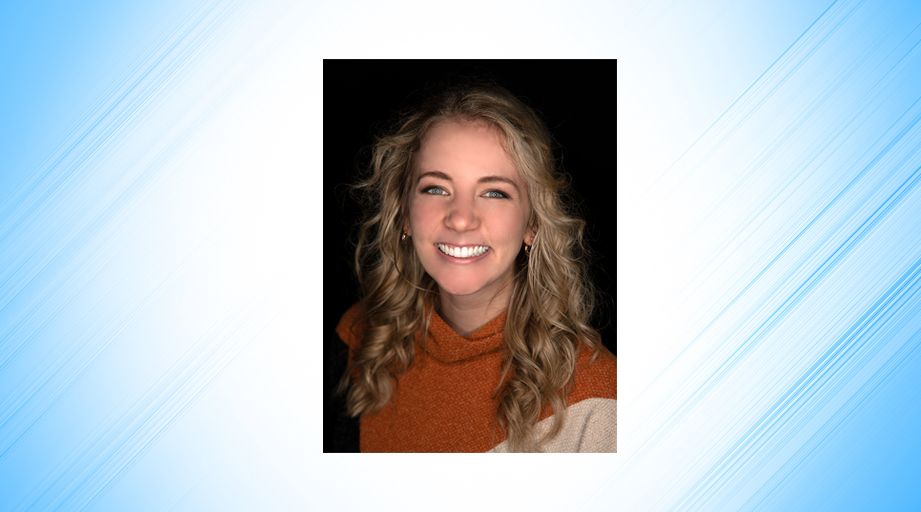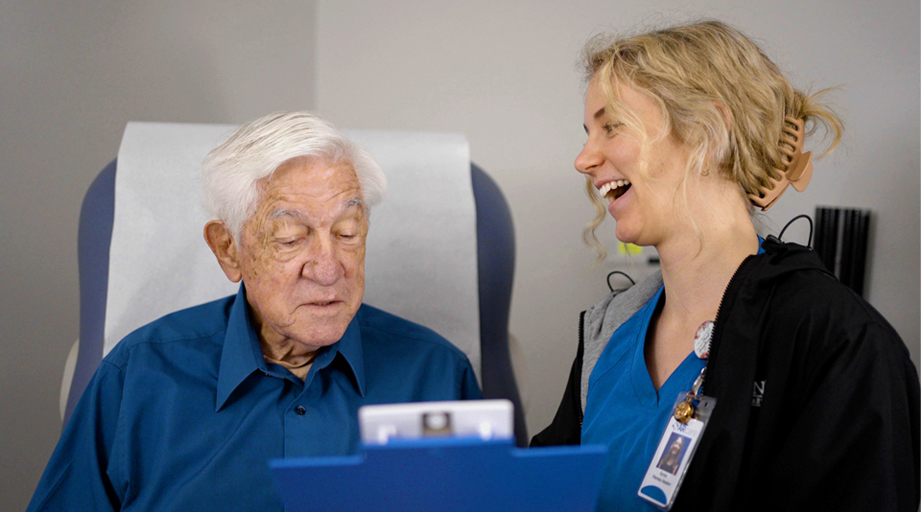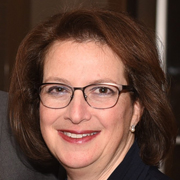
Arkansas is one of two states in the country with the most stringent restrictions for Medicaid access for patients with hepatitis C. Yet, the state has a significant number of people with the condition—an estimated 21,800 people with hepatitis C as of 2016. Pharmacists and other providers at ARcare, a federally qualified health center in Searcy, Arkansas, decided to develop new ways to get more patients linked to care.
Building a team
Through a public health initiative called FOCUS, operated by Gilead Sciences, ARcare received grant funding to better connect patients with hepatitis C, hepatitis B, and HIV (and those at high risk for the viruses) to care.

ASHP member Karlee Carney, who just finished her postgraduate year two as the ambulatory care pharmacy resident at the center, and her supervisor, clinical pharmacist Gabriella Douglas, were excited by this opportunity. They came up with the idea to bring a pharmacy technician into the ambulatory care setting as a patient navigator.
“We’ve worked with [pharmacy technicians] in retail settings, we’ve worked with them in hospital settings, but we haven’t really been able to expand out into this new territory,” said Carney, now an assistant professor at Belmont University’s College of Pharmacy in Nashville, Tenn. “The pharmacy technician has always served such an important role and has been such a vital part of the team of a pharmacist.”
Given the go-ahead from leadership, the health center in June 2022 hired pharmacy technician Stacy White to join the primary care clinic to assist clinic staff, including clinical pharmacists, in caring for patients with hepatitis C.
White quickly got to work identifying patients at high risk for hepatitis C, completing medical background evaluations, scheduling follow-up appointments, ensuring that appropriate labs and procedures are completed, and assisting with external referrals for those with more severe illnesses in need of a gastroenterologist or hepatologist. Additionally, White aided with re-establishing care connections for some patients who previously were lost to follow-up.
White also links patients to additional services offered by ARcare, such as medication-assisted treatment and behavioral health programs, or to a group called Positive Connections that provides HIV and sexually transmitted infections testing.
Encouraging results
Results from the first six months of these efforts have been impressive, indicating that the extra outreach led to a 12% increase in patients with active hepatitis C infections being successfully linked to care, defined as either returning for a follow-up appointment or being referred to a gastroenterologist or hepatologist.
Looking at charts from January to May 2022, before White started, there were 12,054 hepatitis C antibody tests performed, of which 5% of tests were positive, and 47% of those patients had detectable hepatitis C RNA viral load. From this population, 55% of patients were successfully linked to care.
As White started, linkage to care progress was tracked and reported monthly. From June 2022 to January 2023, of 7,097 hepatitis C antibody tests performed, 6% were positive, and 60% of those patients had a detectable viral load. From this population, 67% of patients were successfully linked to care. Additionally, patients have started to come to the health center seeking treatment for hepatitis C.
White “has been instrumental in the care we’ve been able to provide,” Carney said. “She’s so great about making sure that the patients are contacted and cared for.”
A case study about the team’s work at ARcare is featured on ASHP’s Practice Advancement Initiative (PAI) website. PAI 2030 provides pharmacists with tools and guidance aimed at advancing pharmacy practice through the next decade. ARcare’s efforts align with PAI 2030’s recommendation to expand pharmacy technician roles.
Patients and pharmacists are pleased
While other institutions have used different professions for patient navigators, such as social workers, employing a pharmacy technician to work directly with clinical pharmacists in this role has provided “significant strengths,” Carney said.
“Pharmacy technicians receive specific training in customer service techniques and communication skills necessary for positive interactions with patients, coworkers, and other healthcare professionals,” Carney explained. “In addition, having clinical pharmacy technicians working alongside clinical pharmacists decreases the administrative responsibility of the pharmacist, allowing more time for direct patient care.”
In addition, having a technician fully dedicated to the effort five days a week is a huge benefit. “Stacey is such a vital part of our team and is willing to go above and beyond to help those patients,” Carney added.
Response from patients has been largely positive, Carney noted. “It’s rewarding to see patients understand that treatment is easier now and can usually be done by a primary care provider they already trust and have a relationship with,” she said.
Looking ahead
ARcare has set a goal to continue to increase the linkage-to-care rate for hepatitis C patients to above 80% and is looking to expand patient navigation services to include HIV prevention. Training has been encouraged for the clinical pharmacy team through the state Department of Health and the Kentucky Hepatitis Academic Mentorship Program. ARcare has sister sites in Kentucky. White is working to obtain certification from the Pharmacy Technician Certification Board.
Carney advised that pharmacists at other organizations interested in programs like this should continue to think innovatively and creatively. Look into partnerships to help support your efforts. “I’m encouraged by what we’ve been able to do,” she said. “I’m excited to see the advancement of pharmacy technicians and for them to get acknowledgment of their work.”








